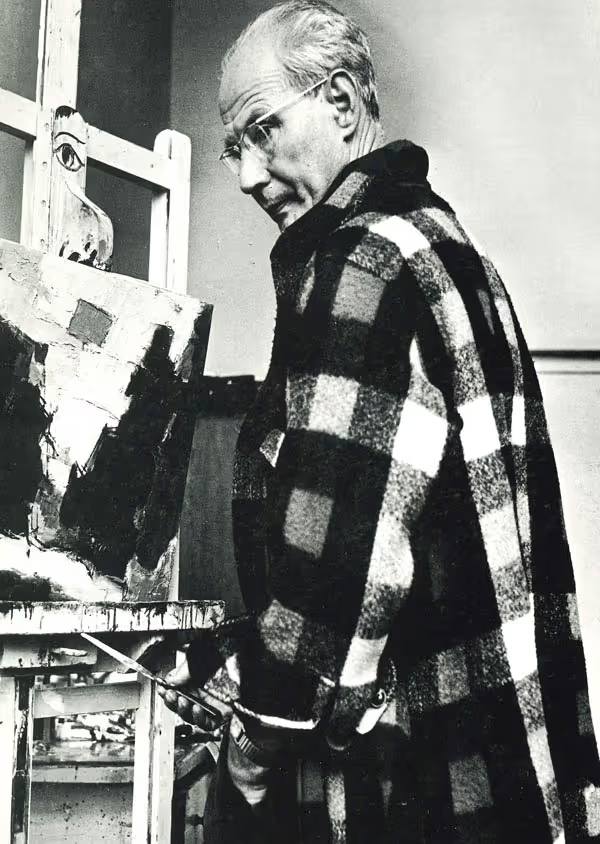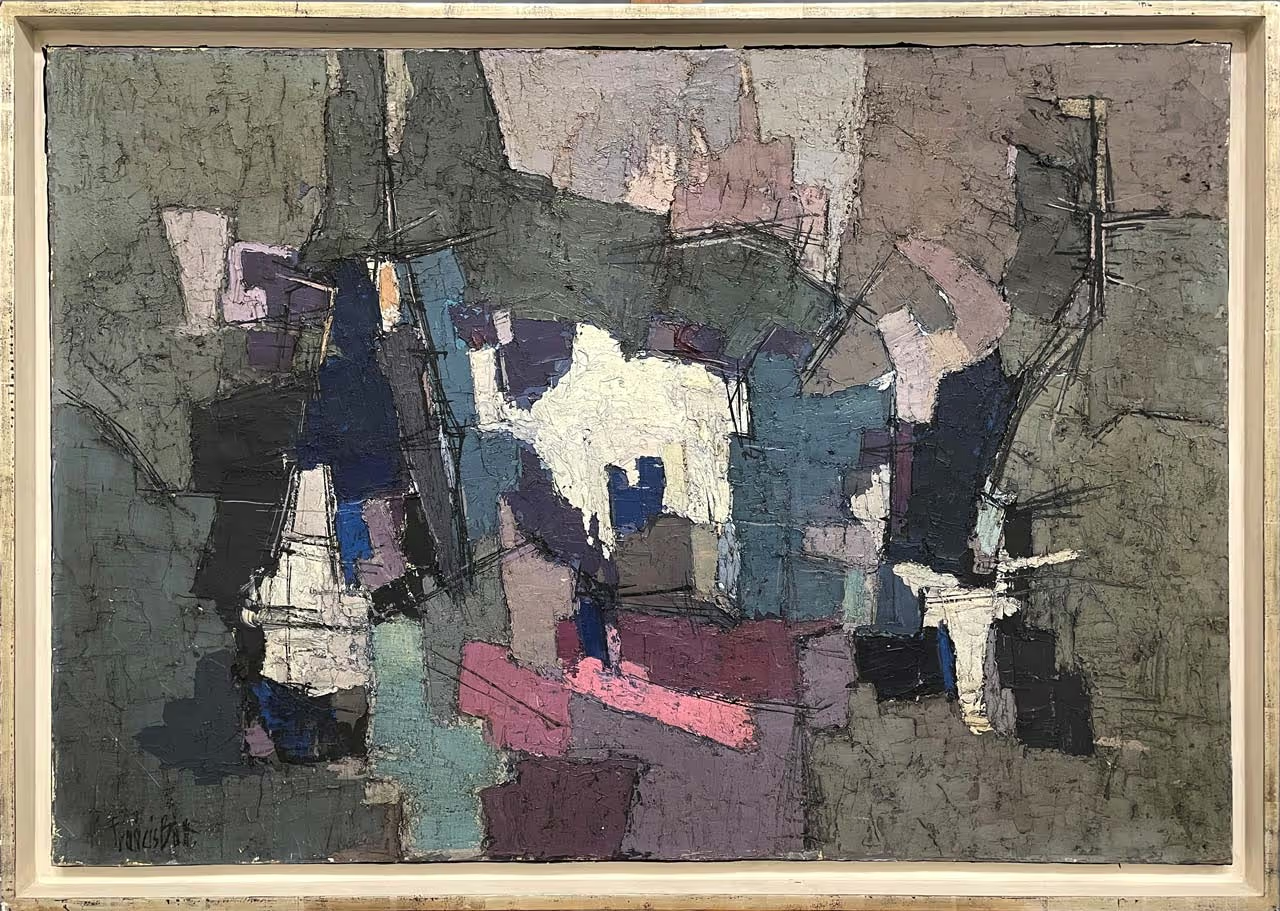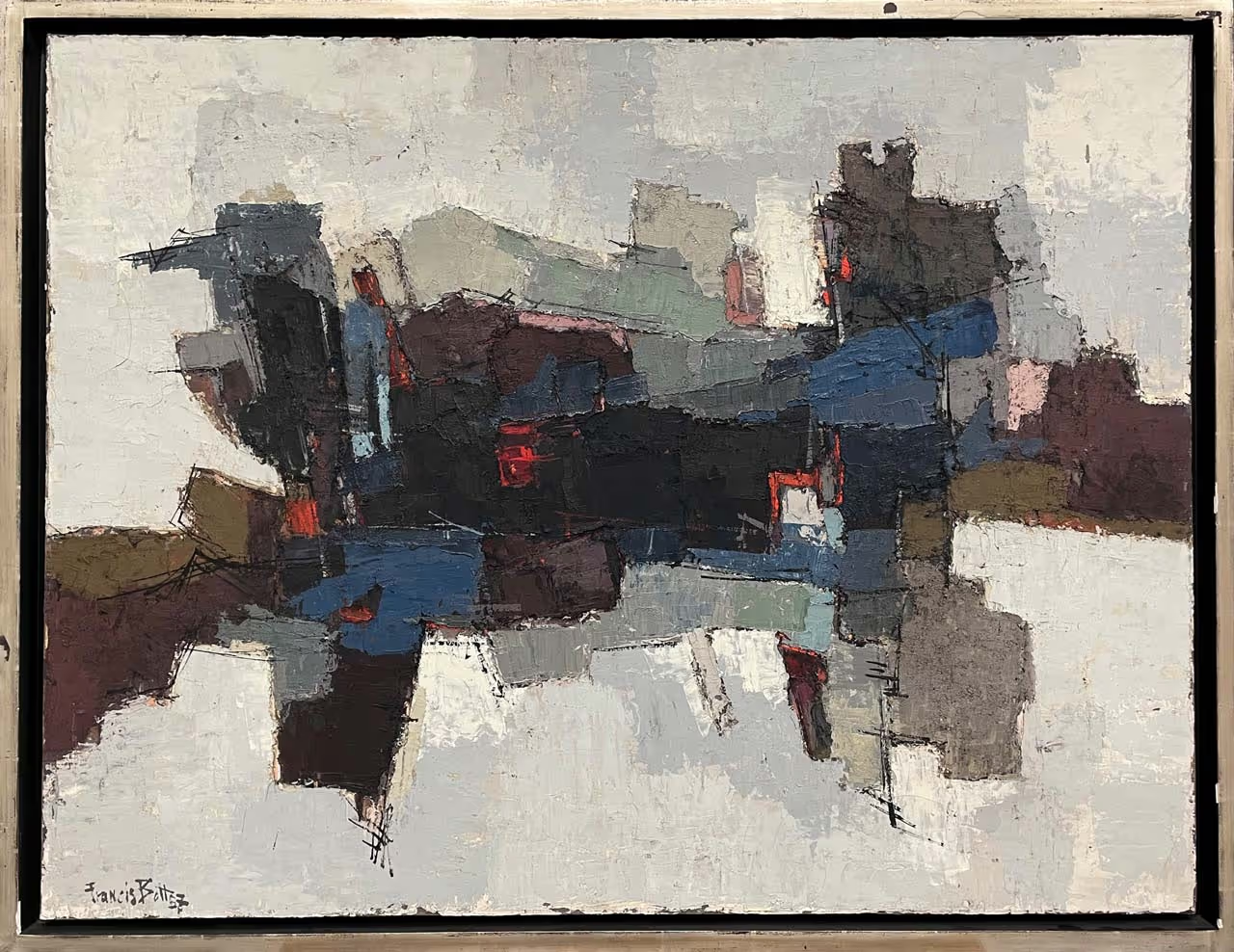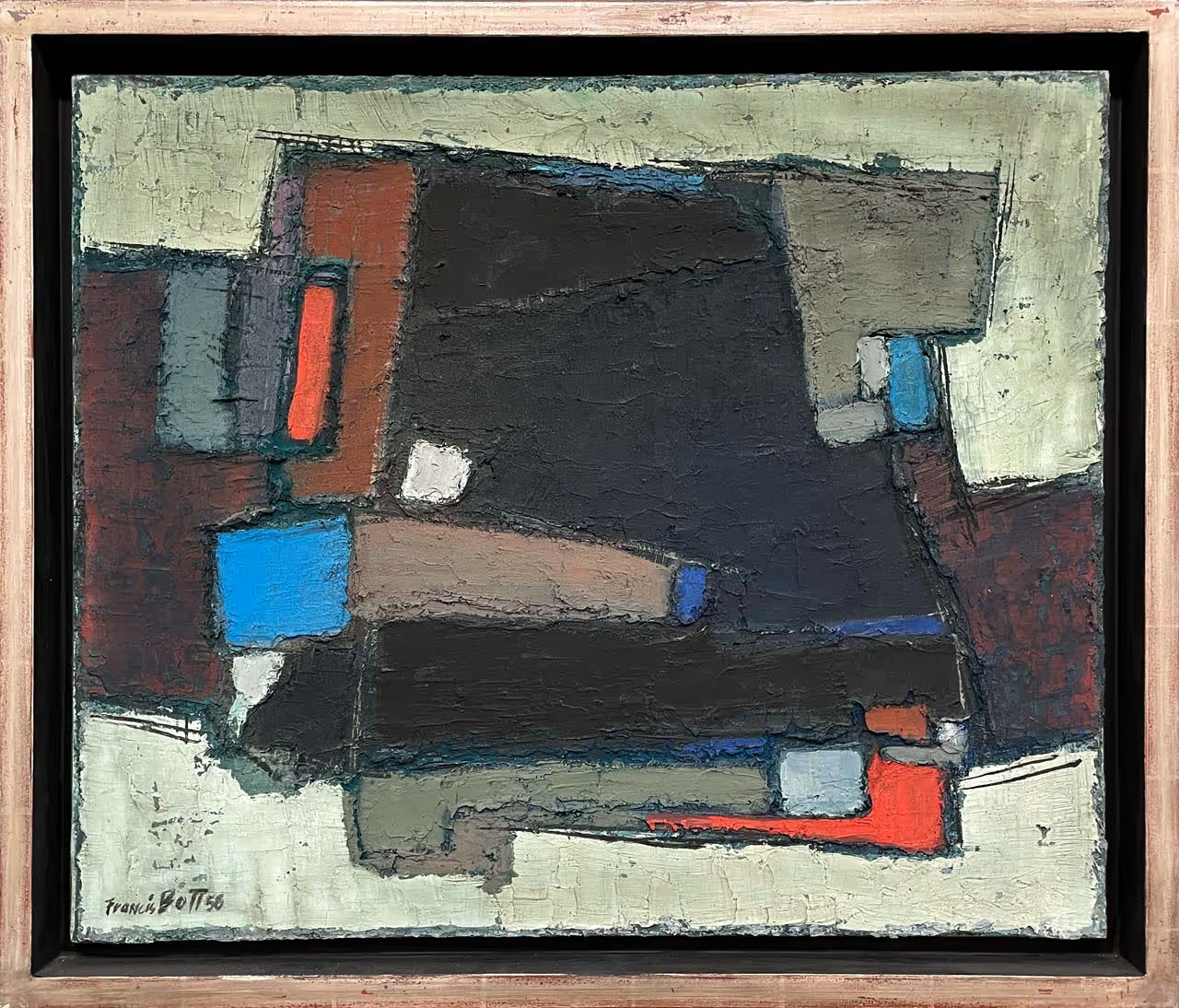Francis Bott

The German painter Francis Bott was born in Frankfurt am Main in 1904 and is considered a representative of the "Second École de Paris", i.e. the French "Informel". Informal art is a collective term for a style of abstract painting that emerged in Europe and the USA after the Second World War. At its heart is the detachment from all formal conditions and the radical departure from traditional pictorial composition.
In the 1920s, Bott became acquainted with the avant-garde in Berlin, Frankfurt, Dresden and Vienna, was sentenced to prison for political activities as a member of the KPD, fled and settled in Prague in 1933. It was there that Oskar Kokoschka noticed the quality of Bott's painting, which he initially practiced purely for a living, and which became his vocation when he met Surrealism in Paris in 1937.
Bott survived the war and the occupation underground in the south of France. He went into hiding in the Pyrenees in 1940 and was able to return to Paris in 1944, where he joined the "Abstraction-Création" group. In the 1950s, he achieved an original pictorial design with unmistakable color surfaces. In the 1970s and 1980s, Bott returned to Surrealism. Later, the pictorial composition became more complex, and the paintings of the 1980s and 1990s often appear somewhat overloaded. During this period, the pictorial spaces are constructed like theater sets and the figures in them are surrounded by mysterious objects.
Francis Bott dies in Lugano in 1998.











